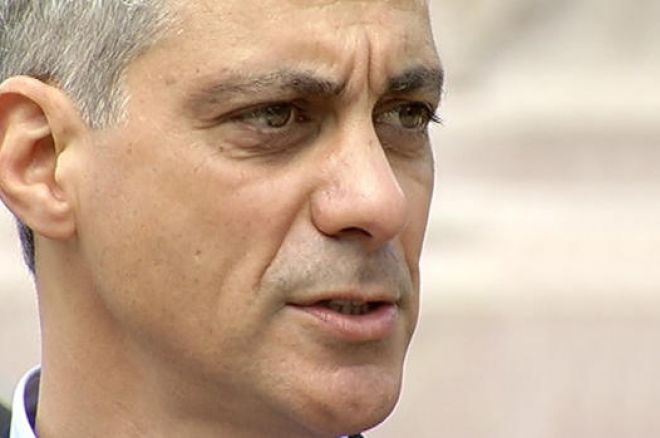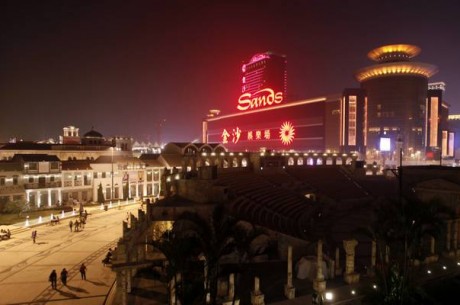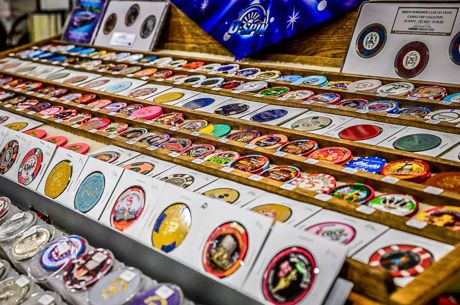Inside Gaming: Illinois State Senate Passes Casino Bill, and More

In this edition of Inside Gaming, the Illinois state senate passes a casino gambling bill, the California state assembly ratifies a gambling compact with a Native American tribe, and both Bethlehem, Pennsylvania, and Macau show profits in casino gaming.
Casino Bill Passes in Illinois Senate
On Wednesday, the Illinois Senate passed a bill that would expand gambling in the state and give Chicago it's first casino. The vote passed 32-20, and will now be sent to the House.
If the bill passes in the House, and Governor Pat Quinn signs the bill into law (he has rejected past gambling bills, citing ethical issues), then five casinos would be built in the Prairie State. In addition, 1,200 slot games would be installed at various racetracks around the state. Those who favor of the bill say it could generate $1.2 billion in one-time revenue along with $269 million in recurring revenue.
Quinn's office seems optimistic, releasing the following statement after the bill passed:
"We're please to see several ethics improvements and others at the request of the governor. We continue to work with lawmakers to make additional refinements."
The Windy City would be allotted 4,000 "gambling sites" for slot machines, and it would also have an option to place slot machines in Chicago O'Hare International Airport and Chicago Midway International Airport. According to Airports Council International, in terms of takeoffs, O'Hare is the fifth-busiest airport in the world and the second-busiest in the United States.
This bill could be a game changer because Illinois is struggling financially. With unfunded public pensions piling up, and a backlog of overdue bills growing, the state is currently indebted $9 billion.
A few weeks ago, we took a look at the bickering going on in Illinois regarding this bill. The two sides are still clashing and debating, but Chicago Mayor Rahm Emanuel has tried to unite the city in backing the bill.
According to a Huffington Post report, Emanuel promised that 100% of the revenue from the Chicago casino would go to public schools. In a video released on Wednesday on his YouTube channel, the Mayor's office said that the money would go "toward modernizing Chicago's neighborhood schools as part of the city's efforts to build a school district that gives the city's students a high-quality education in every neighborhood and the best possible chance to realize their potential."
We'll continue to update you as this bill enters the House. For more, check out Yahoo!.
California Assembly Approves Off-Reservation Casino
On Thursday, the California Assembly ratified a compact with the North Fork Rancheria Band of Mono Indians, allowing the tribe to build a casino in Madera County, miles away from their ancestral home in the Sierra foothills.
Months ago, Governor Jerry Brown approved the casino after the U.S. Department of the Interior gave the green light, but the unconventional predicament led to heavy lobbying on both sides.
David Quintana, a lobbyist who represents the Chukchansi, a tribe opposed to the North Folk casino, believes that this decision could set an unsustainable precedent in the state.
"It's a compact that completely changes the public policy for gaming in the state," he said. "How do you tell the next poor tribe with a compelling story in a remote location 'no?'"
Assemblyman Isadore Hall (D-Compton), who carried the bill, disagrees, saying that the economic boost is needed in the Central Valley and that North Fork Indians deserve "the same right granted to every other sovereign tribe."
"This compact would put Californians back to work," Hall said in a speech on the Assembly floor. "Tribal gaming has replaced welfare with work. Tribal gaming has replaced despair with hope and dependency with self-reliance.
The proposed casino would cost an estimated $350 million, and be built on a 305-acre spot of land near Highway 99, north of Ave. 17. The tribe plans to partner with Stations Casinos to build the facility - a 72,000-square-foot property with 2,000 slot machines and table games. The property would also include a 200-room hotel, pool, spa, three bars, bingo/meeting hall, and several restaurant.
According to the tribe, the casino would create 1,200 jobs during construction, 1,500 once the property was opened, and it would generate roughly $100 million per year in payroll.
Stations Casinos will manage the casino for the first seven years, and then the tribe will have the option to renegotiating a new deal or to take over operations.
For the North Fork tribe, this has been a decade-long process. The bill is now off to the Senate for another vote.
The Sacramento Bee has more.
Macau and Bethlehem Show Profits
The two cities are separated by over 8,000 miles, but this week both Macau and Bethlehem, Pennsylvania are celebrating April's successes.
While the Sands Casino Resort Bethlehem operates on a much smaller level than some of the world-renowned casinos in Macau, the owners can be pleased with the way the casino is competing with the rest of the properties in the Keystone State. According to Lehigh Valley Live, Sands Bethlehem generated $24.4 million in April, which is nearly identical to the $24.3 they generated in April of 2012, but they fared better than the statewide numbers.
Statewide, Pennsylvania dipped 4.2% in slot machine revenue from April 2012 to April 2013.
Sands Bethlehem routinely leads the state in table game revenue, and in March, the casino topped the state with $15.3 million in such revenue. It was the largest amount of money generated in a single month since August 2012, where the casino raked in $14.1 million.
Sands Bethlehem rarely leads the state in slot machine revenue, generally trailing lower Bucks County's Parx Casino.
Across the Pacific Ocean, Macau continues to crush. According to Reuters, in April, gambling revenue in Macau rose 13.2% to $3.54 billion. Ironically, while the gambling revenues rise, shares of the casino operators fell in the Hang Seng Index.
"It's possible that the stocks have sold off a bit on the ABC bank 'scandal,'" Grant Govertsen, the lead analyst for Union Gaming Research told the South China Morning Post. "I suspect [the decline in stocks] yet again falls under the category of the media creating news rather than reporting on it."
Earlier this week, Reuters reported that Yang Kun, a vice-president at Agricultural Bank of China owed Macau casions HK$3.78 billion (roughly $480 million).
With all of China celebrating Labour Day for three days this month, casino revenue in Macau is expected to be strong once again.
Photo courtesy of NBC Chicago
Get all the latest PokerNews updates on your social media outlets. Follow us on Twitter and find us both Facebook and Google+!








